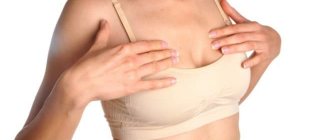Is it normal to have cold sweat?
Provided the child is feeling well and there are no changes in behavior under one year old, cold sweat does not indicate a problem. Most likely it is provoked by physiological factors . It is enough to exclude them, and the symptoms will disappear.
Expert opinionNikolaeva Elena SergeevnaPracticing pediatrician.Ask a question
Sometimes such changes are observed while taking certain groups of medications.
As soon as therapy is stopped, the condition returns to normal.
If after making adjustments the baby continues to sweat, a pathological process cannot be ruled out.
Cold sweat and low temperature
Anyone can have a drop in body temperature. Sometimes this condition is accompanied by increased sweating. There are many reasons that cause cold sweat and a drop in temperature. Some of them are natural and safe for health, others require immediate medical attention. But don't panic right away. Check your baby's well-being. Consult a doctor if it is accompanied by parallel symptoms: dizziness, nausea and vomiting, irritability, general malaise.
The most common causes of cold sweats and low temperature include:
- taking popular antipyretic drugs (“Paracetomol”, “Nurofen”, “Ibuprofen”);
- use of drugs from the group of vasoconstrictor drugs;
- viral diseases.
If the baby’s temperature continues to drop, then before the ambulance arrives, you should:
- Wrap the child in a warm blanket, close the windows, and turn on the heater if necessary (the temperature in the room should not fall below 20 degrees).
- Give him hot tea.
- Bed linen and clothes should be dry; if the child is sweating a lot, then change his clothes.
Attention! Cold sweat, along with a low temperature, may also indicate exhaustion. In this case, for a complete recovery, the child needs constant rest and proper nutrition.
Possible reasons
The process of thermoregulation in a baby is carried out thanks to the lungs.
Provoking excessive sweating is problematic. If your baby suddenly becomes sweaty, it is important to immediately find out the reasons for such changes. They are physiological and pathological.
Physiological reasons
If your baby breaks into a cold sweat, exposure to natural factors should be excluded.
The following physiological reasons are distinguished:
- very soft, warm bed;
- high air temperature;
- excessive physical activity;
- dry air;
- incorrectly chosen clothes.
You need to ensure that the air temperature is between 18–20 degrees. It is worth remembering about regular ventilation.
It is recommended to choose a hard mattress and bedding made from natural materials.
It is important that the baby is dressed appropriately for the weather . This way it will be possible to eliminate the unpleasant symptom.
Pathological causes
Sometimes the baby sweats a lot due to the onset of the pathological process.
The following health problems can provoke the appearance of such symptoms:
- Vitamin D deficiency, which provokes the development of rickets. There is a lag in physical and mental development. Hair begins to fall out, and a bald patch appears on the back of the head. The child sleeps poorly, loses appetite;
- hyperhidrosis. Signs: excessive activity of the sweat glands; in the general form of the disease, sweat appears evenly. Local hyperhidrosis is characterized by the appearance of perspiration in certain areas of the body (palms, forehead, neck);
- pathologies of the heart and blood vessels. Increased drowsiness, weakness, lethargy are noted;
- disruptions in the activity of the endocrine system. Insufficient or excessive amounts of iodine lead to disruption of metabolic processes;
- bacterial, viral infection. The main symptom is hyperthermia. The body creates a barrier to the development and reproduction of pathogenic microorganisms and activates protective functions. Associated symptoms: sore throat, runny nose, cough;
- diseases of the nervous system. Perspiration appears in a newborn baby on certain parts of the body. The baby becomes capricious, irritable, sleep is disturbed;
- respiratory diseases (tuberculosis, pneumonia, bronchitis). There are breathing problems and a severe cough.
What to do first?
Sweating often goes away gradually as you get older. Initially, parents should calm down and monitor the baby’s condition for several days. It is also recommended to take the following measures:
- Maintain a constant temperature in the room, regardless of the time of day.
- Dress your baby according to the weather, make sure that his clothes are made from natural fabrics, they are loose and not tight to the body;
- Do not give food that causes sweating - spices and seasonings. They are included in chips, crackers, smoked meats, etc.
- Try to take a walk before bed, this will improve your baby’s well-being and he will sleep more soundly;
- Remove soft mattresses, warm blankets and feather pillows. The bed should become moderately hard and comfortable for sleeping.
If, after completing all the measures, the baby continues to regularly break out in cold sweat, then you should consult a doctor. Be sure to go to the pediatrician or call an ambulance if your baby exhibits other symptoms (vomiting, diarrhea, etc.).
Sweating at night
Parents often notice that the baby is wet from sweat at night while sleeping.
Reasons for such changes:
- the child was exposed to the sun for a long time;
- high air temperature, excessively warm clothing;
- adverse reaction caused by medications taken;
- the beginning of the development of an infectious disease;
- overweight;
- in the evening the baby overate;
- during the day, vivid impressions were received;
- fear, fright;
- runny nose.
During sleep
At night, children also develop cold sweat. This happens at any age, even in infants. Most often, this is how the body reacts to overheating (stuffy air, high temperature in the room, too warm blanket). From three weeks of age, infants already respond to changes in room temperature.
Excessive sweating during sleep occurs in excitable children. The nervous system cannot yet cope with the emotional load. The children probably got a lot of impressions during the day and learned a lot of new things.
Sometimes cold sweat in a child during sleep also indicates serious reasons:
- infections caused by viruses (ARVI, influenza);
- stuffy nose and cough;
- fever;
- prolonged exposure to stress.
Attention! Sweating during sleep can also be caused by eating hot, spicy and spicy foods before bed. Even regular, excessively hot tea can cause perspiration.
Causes of sticky sweat
Sticky sweat is observed in babies for the following reasons:
- heart disease;
- circulatory disorders;
- overactive functioning of the thyroid gland;
- taking antipyretic and painkillers;
- excessive emotionality;
- disorders of the nervous system;
- developing rickets;
- increased intracranial pressure;
- lowering sugar levels;
- low blood pressure;
- recent viral disease with complications;
- vitamin D deficiency;
- pneumonia;
- disturbance of phosphorus and potassium metabolism;
- physical exercise;
teething;- Infectious mononucleosis;
- colds, flu;
- viral gastroenteritis;
- infectious kidney diseases;
- pancreatitis;
- HIV;
- tuberculosis;
- bronchitis;
- angina.
Sweating in children: is it normal?
The process of sweating is completely normal. It is carried out due to the work of the sweat glands and is responsible for many processes in the body. There are two types of glands: apocrine and eccrine. The former are present only in some parts of the body and are responsible for the release of pheromones, which determine the natural smell of a person. The latter have greater functionality. They participate in acid-base metabolism, protect the skin from bacteria, carry out thermoregulation of the body and participate in the elimination of toxins.
In children before puberty, only the eccrine glands work. They cover the entire body, but in some areas their concentration is especially high. Under normal conditions, the body produces a small amount of sweat, which quickly evaporates from the surface of the skin. When enhanced thermoregulation is necessary, for example, during physical activity, this secretion is released in large quantities.
Sweating is considered pathological if the secretion is released in large quantities at a moment of complete physical and emotional rest. If the child’s nervous system is excited or he is actively doing something, then increased sweating is quite natural.
The appearance of cold sweat on the forehead
Sometimes there is perspiration only on the head, and the baby's forehead sweats a lot.
Such changes are provoked by a number of reasons:
- overwork;
- incorrectly chosen clothes;
- non-compliance with skin care rules;
- overheat;
- eating or sucking a pacifier (this is a considerable physical activity for the baby);
- taking medications;
- excess weight;
- hereditary predisposition;
- hormonal fluctuations;
- infectious diseases;
- intrauterine infections (cytomegalovirus, toxoplasmosis, chlamydia);
- anemia;
- endocrine disorders;
- diabetes mellitus (symptoms appear at night);
- pathologies of the kidneys, liver;
- lack of vitamin D;
- heart disease;
- deviations from the central nervous system;
- rickets.
External influences leading to sweating
Increased sweating is not always associated with illness. Very often this condition is caused by some external factors. In this case, it will be enough to simply identify the cause and eliminate it yourself.
External causes of sweating:
- Too high a room temperature and a dry microclimate can lead to increased sweating. The heat outside also contributes to this;
- Your child will also sweat a lot if they are dressed too hot. For example, sleeping in warm pajamas in the summer or wearing several layers of clothing in a heated room;
- Increased sweating is possible when taking medications that have side effects such as “increased sweating” or “increased temperature.” Antipyretics also have similar properties;
- Obesity is another cause of sweating. Overweight children sweat more than their peers;
- Vivid and nightmare dreams can also cause night sweats. This can also be caused by too long a deep sleep phase;
- Poor diet is another problem that causes excessive sweating. This is usually caused by the abuse of fatty, hot, spicy, smoked and sweet foods;
- Fears and stress also often lead to sweating.
Methods for eliminating symptoms
If the problem is caused by physiological factors, to eliminate it, it is enough to follow the following recommendations:
Expert opinionAnastasia Mikhailovna MoiseevaPracticing general practitioner, 18 years of experience.
- ventilate the room before going to bed;
- monitor the level of humidity and air temperature;
- Avoid feeding immediately before bedtime;
- carefully approach the choice of bed linen and clothing (only light, natural fabrics);
- bathe your baby daily;
- prevent conflicts and stress;
- take regular walks in the fresh air.
If excessive sweating is caused by pathological processes, you cannot do without medical help. Treatment tactics are selected after an accurate diagnosis is made.
Why is there increased sweating after a drop in temperature?
An increase in temperature during illness is due to the effect on the hypothalamus of immune cells, as well as various pathogenic substances. Fever has a protective function and helps the body fight the disease. When the temperature rises, several important functions begin to take place. It is thanks to them that the body begins to fight the disease.
What happens when the temperature rises:
- In conditions of elevated body temperature, pathogenic microorganisms multiply worse;
- Due to the increase in temperature, phagocytosis and other immune processes are activated;
- Antibodies and other elements important in the fight against diseases begin to be intensively produced by the body.
Thus, it is the increase in temperature that activates all processes in the fight against the disease. Therefore, fever with a cold is quite natural. When pathogenic life forms are “defeated” by the body, the temperature begins to decrease. However, stabilization of the set point cannot occur immediately. This is carried out due to the thermoregulation system, which is represented by the sweat glands. That is, when the temperature drops, the child will produce cold sweat.
Such processes occur not only with a natural decrease in temperature. Increased sweat production will also be observed when taking antipyretic drugs.
What measures can be taken to prevent a child from sweating?
If a child is sweating, then this alarming sign should not be ignored. Especially if excessive sweating occurs in a calm state and is present for more than two weeks after recovery. If you experience excessive sweating, you should visit a doctor. In the case of children, first of all, you need to contact a pediatrician.
The specialist will examine the baby and get acquainted with his medical history. Next, blood and urine tests will be prescribed to help identify inflammation and other negative factors. Depending on the results of the initial examination and tests, the doctor will refer the child to a specialist or prescribe instrumental testing. After this, a diagnosis will be made.
If sweating is caused by an illness, then it must be treated by listening to the doctor’s recommendations. In this case, therapy is prescribed depending on the individual characteristics of the child, as well as the specifics of the pathology.
In the case when the doctor does not identify any diseases that can cause sweating, it is necessary to take a closer look at external factors. Perhaps they were the cause of the child’s sweating.
Selective nutrition
A problem with selective eating in a child can have many causes, and it is important to determine where it comes from: psychological or medical. It is important to accurately determine the source of this symptom.
It is normal for a child to be cautious about food. We are talking about a situation when a child refuses food that he sees for the first time and has never tried, saying at the same time that he does not like it. This is an instinctive behavior, an ancient natural defense mechanism aimed at preventing the consumption of dangerous, inedible things. It can work too actively if the child’s general sense of danger is increased. Any aspect of the emotional state is reflected in food in the same way as it is reflected, for example, in general activity or sleep.
A child’s selective diet – in a neurological sense – usually correlates with increased nervous tension, a feeling of stress, and anxiety. It appears either in response to some psychological problem, or due to a disruption in brain function. It can also be a chronic general disease, supplemented by infection (birth injuries, increased intracranial pressure, epilepsy, adenoids, tonsils, etc.). Chronic pain syndromes (for example, a child’s ears hurt for a long time) contribute to a decrease in a child’s appetite, increasing the child’s level of nervous exhaustion and feelings of anxiety; consequences of operations, injuries, hospitalization.
Sometimes a child does not eat well due to weak chewing muscles, as a result of disruption of the brain stem after suffering an intrauterine or birth pathology. As a rule, this is also expressed by other visible neurological disorders, which are easily detected during a neurological examination.
It happens that a child does not eat something because he has an allergic reaction to food or physical problems after eating, for example, indigestion or heartburn. In this case, he will instinctively avoid the “wrong” food that causes him discomfort.
Excessive food selectivity is quite common in autistic disorders. Despite the existence of several different types of behavior in the event of refusal to eat and the occurrence of tantrums while eating, a fairly common symptom in autistic children is some peculiarities in “eating behavior”. For example, the child eats little in general, or only eats macaroni and cheese and refuses everything else. Rejects dairy products or does not eat fruits and vegetables. Selects foods based on properties such as shape or color, rejecting foods of a certain color (often red) or shape (often round). Sometimes the reason lies in the reluctance or fear of trying a new product when its usual properties, such as color or shape, change. And also in an unpleasant impression (from taste, smell, packaging, etc.) already associated with familiar food that previously caused negative reactions.
It is likely that the child may have pain in the joints and muscles of the jaw, and he may complain that it hurts to chew. This sensation is usually accompanied by inflammatory diseases of the nasopharynx and oropharynx: tonsillitis, pharyngitis, sinusitis. With prolonged inflammatory processes in the pharynx, inflammation of the attachment points of the facial muscles, neck and head muscles to the bones also occurs. At the same time, it really hurts the child to chew. Plus, it will be difficult for him to swallow due to enlarged tonsils. This is a real problem. For this reason, the child may well refuse solid food.
Large, enlarged tonsils can cause a gag reflex and interfere with normal nutrition, cause a feeling of nausea, and can provoke vomiting after eating and even before eating. For example, a child with enlarged tonsils may vomit stomach acid immediately after waking up. Enlarged tonsils can greatly reduce appetite due to irritation of the gag reflex. Adenoids behave the same way, although to a slightly lesser extent. Thus, an increase in these lymphoid organs of the oral mucosa can cause a significant decrease in appetite.
There is also the aspect of children’s extremely low water consumption. If this happens to a child, it is recommended to check the functioning of his digestive system and intestines. And also check the general level of the nervous background, since dysfunction of swallowing or drinking can be associated with a number of purely neurological and mental problems.
Food refusal is a general term that covers a wide range of eating disorders in children, including those that impede their development. Children may refuse food, but still drink enough to support development and growth. They refuse many foods, but maintain their body weight by eating more of their preferred foods. While other children who refuse food, on the contrary, have very little body weight, and they lag behind their peers in physical development.
Therefore, before starting treatment, it is important to clearly identify the type of eating disorder that the child exhibits, taking into account both the etiology of the disorder and the existing symptoms.
Where to begin? A consultation with a neurologist or neuropsychiatrist is required; if necessary, an encephalogram is performed, the cerebral vessels and the level of intracranial pressure are checked. The examination results provide the necessary information for treatment. For example, after blood circulation in the brain was normalized, intracranial pressure normalized, the tonsils were treated, and the child began to eat normally. Also, it would be appropriate to consult a child psychologist about behavioral and psychological problems that require correction.
Elimination of negative factors
If the cause of sweating is not a disease, then it is quite possible that the problem lies in external factors. In this case, parents should follow a few tips to help solve it.
Prevention of child sweating and elimination of factors that contribute to this:
- First of all, it is necessary to normalize the temperature and humidity in the room. In summer, regular ventilation will help with this. In winter, it is necessary to set the heating temperature correctly and also use a humidifier;
- It is also important to dress your child correctly. Don't wrap him up too tightly. It is also advisable to purchase clothes made from natural fabrics. In summer it is not recommended to use warm blankets;
- Maintaining hygiene is also important. The baby must take cleansing procedures daily. It is also important to change your underwear every day. The bed must be changed at least once a week;
- It is necessary to normalize the child's diet. Nutrition should be balanced. The baby should receive a daily dose of vitamins, minerals and other beneficial microelements. You need to avoid harmful foods.
If a child sweats at night, this does not mean that he is seriously ill. However, this sign should make parents wary. After all, it can also be a symptom of various diseases. Be attentive to your children and they will be healthy.










